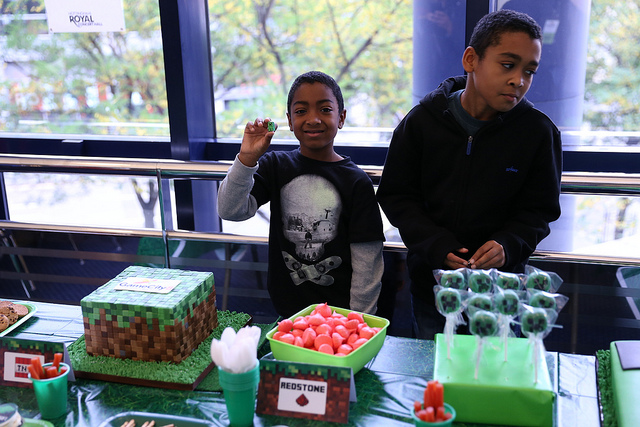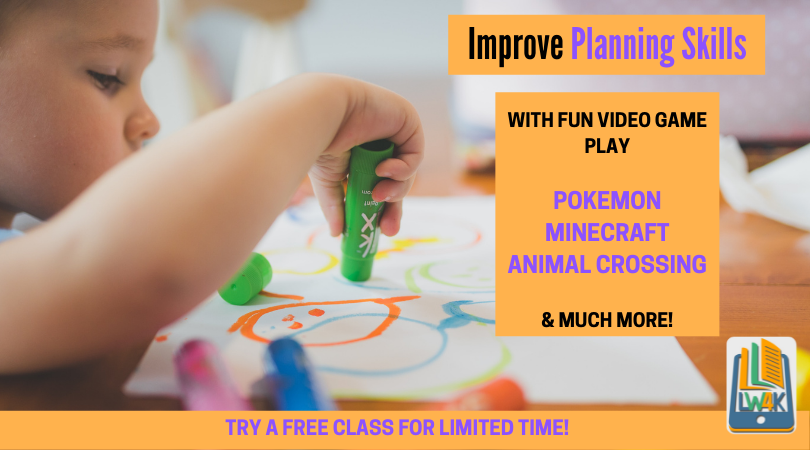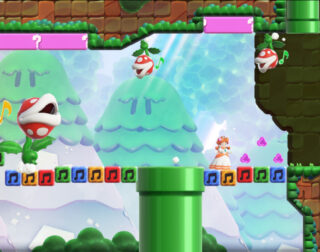As parents, we are always looking for ways to tie the hobbies and obsessions of our children to real-life skills. For those of you who have children who live and breathe Minecraft, the first ever Minecon Earth may have been a big deal in your house. We adults get together and watch sports games and television premiers and finales, so how about letting your child host a viewing party with all of their fellow Minecraft buddies? Even though the live event is past, it can be watched (or rewatched) on YouTube.
You can help your child build important executive functions by letting them plan a party for any event; their favorite holiday or video game, their own birthday party, or even their favorite wacky holiday found on this list (National Popcorn Day is January 19th — yum!). Work with your child to form a checklist like this one, adapting as needed to their time frame and party needs, and then let them do as much of the planning themselves as possible. They will even get a chance to work on thinking skills like focus, flexibility, working memory, self-control, self-awareness, organization, time management, and, of course, planning. Read on to find out how these skills are used during any sort of party planning:
Focus
There are many focus thinking skills used during party planning. Most obviously, it is important that the planner be able to initiate tasks without procrastinating. If you need to send out invitations, for example, and you procrastinate the job, your guests may not get them in time to add the party to their schedule. It is also important to be able to switch between and maintain attention on multiple tasks, of both a short-term (putting stamps on envelopes today) and long-term (making a costume over the course of a week or more) nature. Juggling all the different elements of planning a party is absolutely necessary to have an actual party match the imagined party as closely as possible.
Flexibility
Whether party planning will work a child’s mental flexibility depends largely on external forces. For example, how tight is the budget compared to how grand their ideas are for the party? It will also depend on how smoothly things go. Is the space they want available or not? Did they accidentally spill juice on their first set of invitations? Chances are, however, that something will be outside of their budget or will go wrong during the process. When this happens, it provides the perfect chance to adapt to obstacles and try new things. The cool Minecon Earth t-shirt is too expensive? What new, do-it-yourself project could be done so the child is able to wear “event gear” to their party? The more flexibility shown in preparing for a party, the easier it is for them to have the “perfect” party they are imagining.
Working Memory
Remembering what needs done to plan the perfect party requires that the planner actually remembers what is left to do. This means that planning a party provides your child the chance to work on following directions (the checklist they are using to help plan the party) and improving their forgetfulness. If they don’t follow their list and work hard to remember what is on it, then their party won’t be the way they wanted it to be. That is powerful motivation to use their memory to their best ability!
Self-Control
Party planning also provides some great opportunities to practice self-control. First, the planner must think about the future: what do they want the party to be like, how long do they have to get ready, and how long will each element of the party take to prepare. If there’s a limited budget, the child must also keep a tight rein on their impulses. That super cool creeper piñata may not be the best decision if it’s going to take up most or all of the budget. If the party planner doesn’t control their emotional reaction, they’ll have bought the piñata, spent most of their money, and still have lots of party to plan. A child whodoesn’t exercise self-control will find themselves hosting an unbalanced, unsatisfying party.
Self-Awareness
Another cognitive skill needed for party planning is self-awareness. The social aspect of a party makes it highly useful. To begin with, the party planner must be able to assess their own desires for the party. Do they want it to be a big party or small party? Can they afford a big party? Do they have space? Is the size of the party more or less important than the type of snacks at the party? All of these types of questions require an awareness of the difference between wants and needs, as well as prioritization.
A party planner also needs to be aware of their guests’ needs, meaning that they must be able to empathize with other people. Are the snacks they have selected ones their friends will like too? Does their best friend have a favorite food they could include to make the party more welcoming to that friend? And, of course, the actual party itself will work on improving social skills. Once the party arrives, snacks need to be shared and guests need to be greeted and introduced to each other. In the case of a video game based party, guests may discuss building plans or how to rotate controllers so everyone can play.
Organization
Exercising organizational skills is perhaps one of the most obvious benefits of planning a party. The planner must begin by organizing their ideas. What do they want to include? Who do they want to invite? How much money can they spend and where would they prefer to spend it? What resources do they already have at home? If your child can’t keep the answers to these questions organized, things will get forgotten.
On the day of the party itself, the planner must have some organization for the elements of the party. Where will everyone sit? How can the snacks be arranged? Where should any decorations go? When and where will Minecraft game-play take place in relation to the rest of the party? In other words, the places and things that will make the actual party a party must be organized as well. A lack of organization will show itself on the day of the party, through forgotten elements or overall confusion for the party goers.
Time Management
While different parties require different levels of time management, it’s still a very important skill for planning a party. Selecting the appropriate to-do list (or crafting a custom one) requires knowledge of how long a task will take, for example. The party planner must then stay on top of the to-do list, keeping pace with that timeline. The planner must use this skill or risk running out of time
Planning
Problem solving is also important. During the course of planning, the planner will run into some sort of problem. It could be minor, like running out of glue while making a Minecraft mask, or it could be major, such as having a $50 budget for $75 worth of supplies. Either way, the planner has to figure out a way around the problem. Could they use tape instead? Or go to the store and get more glue? Is there a different type of glue they could use? The solution rarely matters as much as the fact that they don’t give up. And with the motivation of a fun party, children will be much more likely to stick to finding a useable solution.
Mathematics
Planning a party can even lead to the use of computational mathematics skills. How many people can fit in the party space? What remains in my budget after I buy a one dollar package of paper plates? How long should the party be for the 90 minute Minecon Earth and playing the game for 90 minutes? Math answers all of these questions. The more involved a parent is in assisting–without simply doing–the planning for their child, the more they can create these mathematical moments, too. All they have to do is ask questions that involve numbers and require numbers as an answer. Then step back and watch your child practice their math skills in a fun and natural setting.
Reading
Parent’s can also emphasize reading during party planning. Picking out and then following the perfect party planning checklist? That requires reading from day one all the way through to the day of the party. If your child is engaging in do-it-yourself projects following recipes, that will require reading and comprehension. It’s even possible to engage a child’s reading skills by using a grocery list and reading labels at the store. Reading is everywhere. With a little guidance, parents can make sure their child uses these skills every step of the way.
Writing
Planning a party can provide your child needs work on forming sentences, practicing spelling, or even just handwriting. Writing lists, making decorations, and creating invitations are all areas that rely on writing skills. Invitations can provide spelling practice, for example. Simply have your child make a hand-written rough draft. Help them proofread and correct errors, and then guide them to use the corrected proof to copy from. If you’re less concerned about handwriting, do this on a computer. Your child will practice their writing and computer skills. The more care they put into it, the more pride they’ll take from both the party and their personal growth.
What are you going to celebrate? Let us know in the comments!
Featured image: Flickr user nottinghamgamecity






